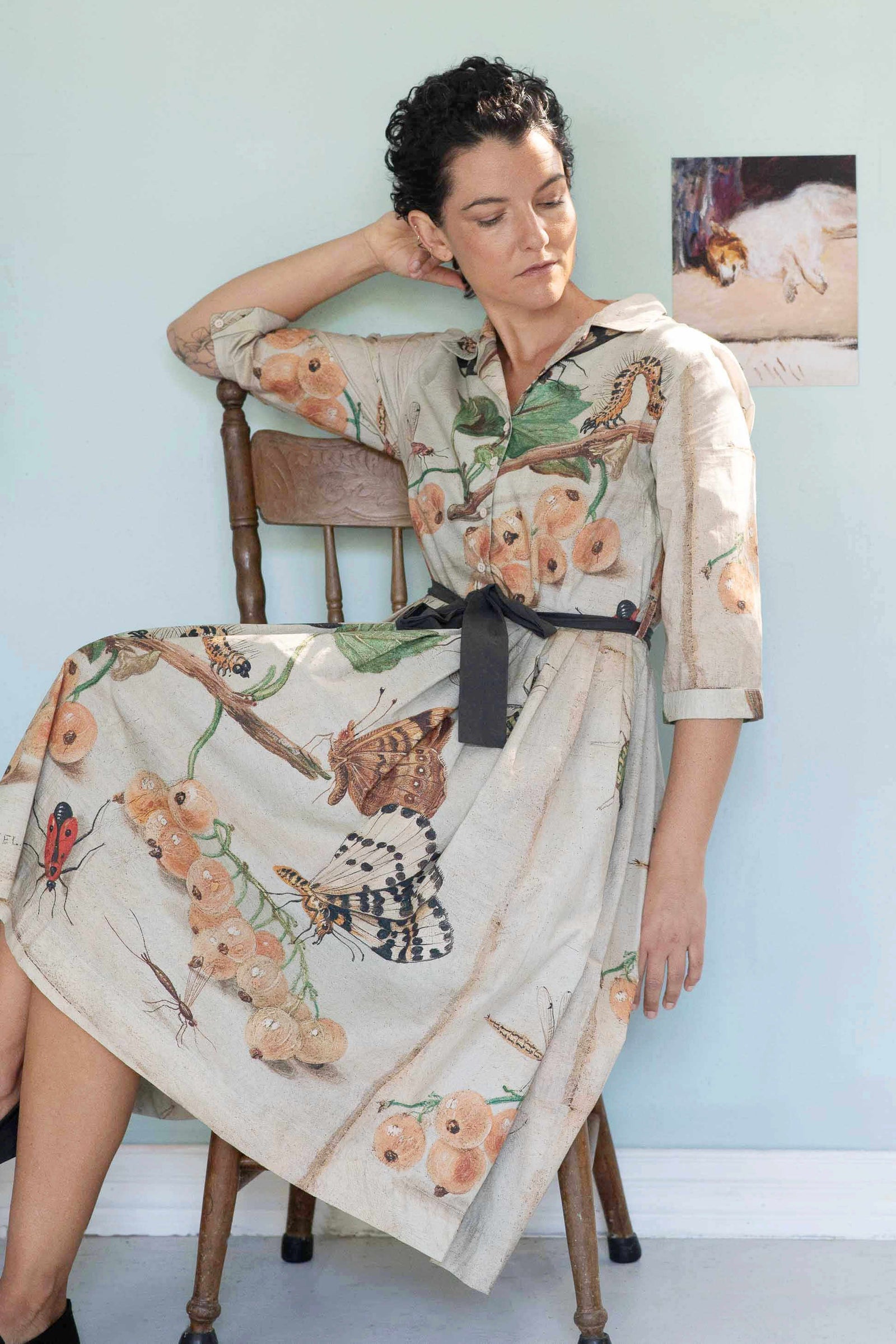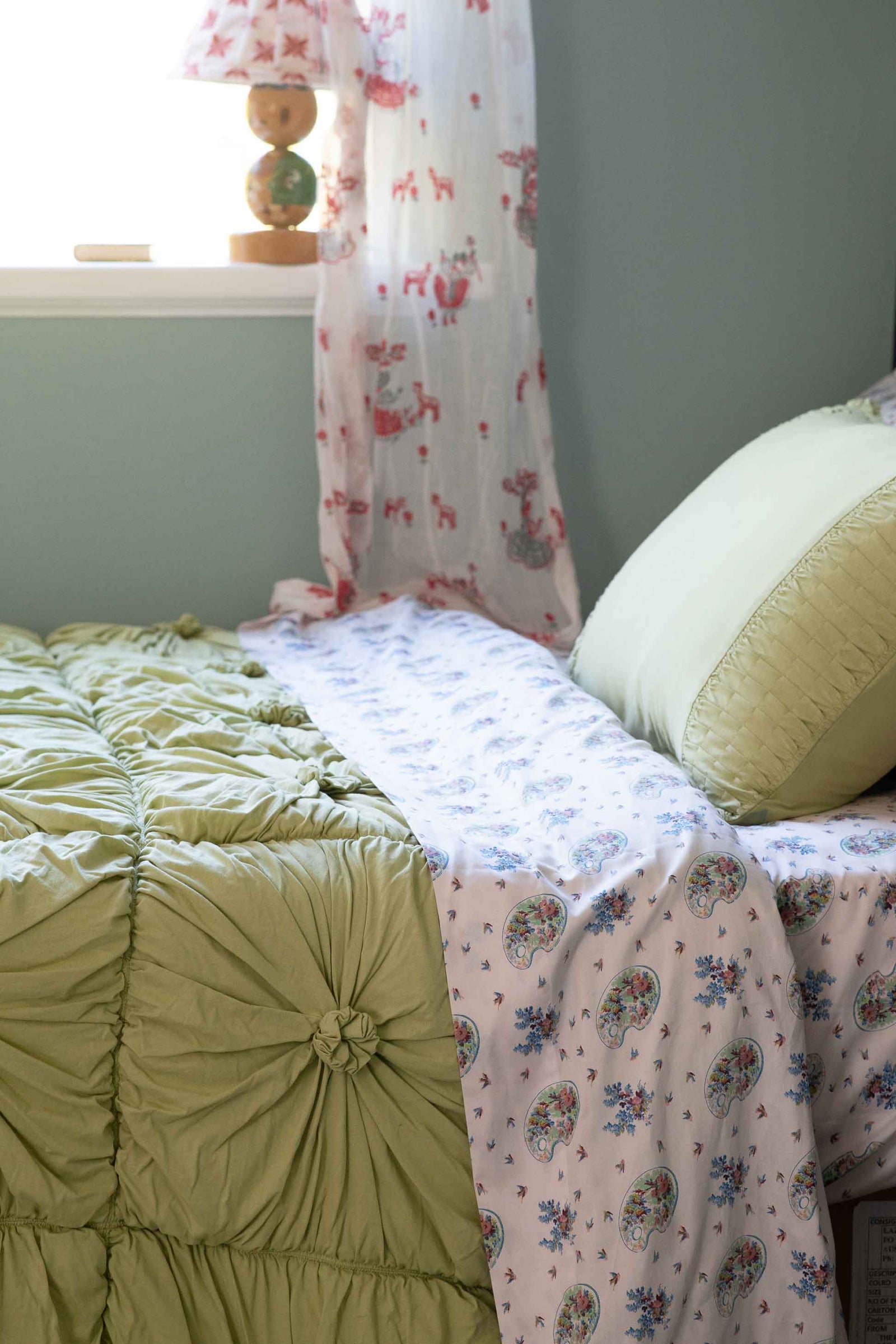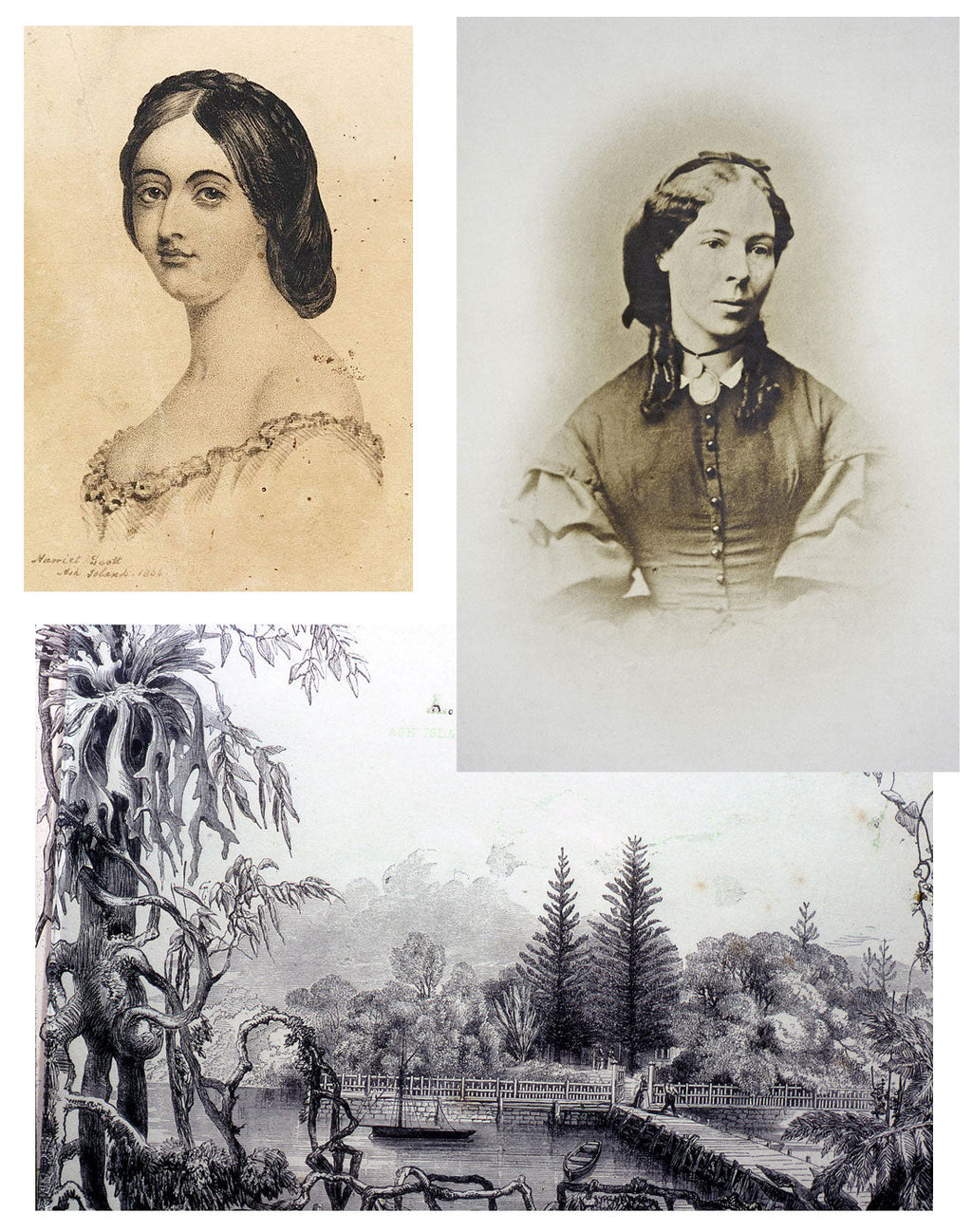Linda Pascal is a lover of Lazybones who was inspired to contact us when she saw the Scott sister's artwork featured on our cushion covers.
Here's our little interview with Linda.
As a volunteer social historian, is there any particular reason for your fascination with the Scott sisters?
I volunteered to write some articles about women after hearing a talk about the National Dictionary of Biography's project to include more women, especially colonial era women.
I have a history degree and had worked in the federal Office for Women where I did a lot of research and writing so I thought I could contribute to this project.
The editor suggested the Scott sisters to me as there was only brief information about them tucked into the biography of their father, Alexander Walker Scott, but they each deserve their own article. I became very interested in and impressed by them once I started researching (and imagining) their lives. They were great artists and natural history scientists.

How did you research them?
Fortunately I also volunteer in the library and archives of the National Gallery of Australia so I was already learning and writing about Australian women artists and knew how to research people.
I had access to books about them through the gallery's library and National Library of Australia and original prints of their paintings in both institutions.
I also visited the State Library of NSW, the Australian Museum and the Royal Botanic Gardens Victoria to read their letters and look through their archives.
The Trove newspapers on the National Library site are also really helpful.
I did a lot of online research as well but to write accurate history, I really had to look at the primary documents such as their letters, paintings and newspaper reports.

Can you tell us more about what is involved in being a social historian?
I am a volunteer social historian in my retirement, so it's not a full-time history job.
I'm interested in researching and writing about people and ideas or social movements.
I try to write respectfully about women as individuals with their own beliefs, interests and achievements, not only their relationship to someone else.
I get to choose who I write about and research and write at my own pace.
I am mainly concerned about writing women into the common history sources people use, so I focus on writing articles on Wikipedia and the ADB's "People Australia".
I'm involved in two Wikipedia groups, one writes about Australian women artists and one about Australian women in religion.
I've written about Australian suffragists, women artists and women in the church.
It involves doing lots of research and being sure of the facts of someone's life before I write about them so I don't spread misinformation.
I don't rely only on what other people have said about these women but double check as much as I can.
That can involve travelling interstate to read diaries, letters, archives or books that are only available in one location.

If you could live in any era in any place when and where would it be?
I often imagine and plot out a home on the shores of Sydney harbour in the 19th century for single, unsupported or destitute women.
It would be a group of sandstone cottages where women could be educated, learn skills and ways to earn their own living, insist on their human rights and manage their own finances.
The home would act as a marketplace for the goods the women produced and be run in a democratic way.
So on the outside it would seem like a respectable charitable institution but it would be quite subversive in giving women knowledge, independence and an income.
There were many charitable institutions for women at the time, some more punitive than others.
Mine would be much more liberating for women.
I guess though I would have to act and dress like a well-bred patroness to get support from colonial society.
Find out more about Linda's on her Wikipedia user page.






